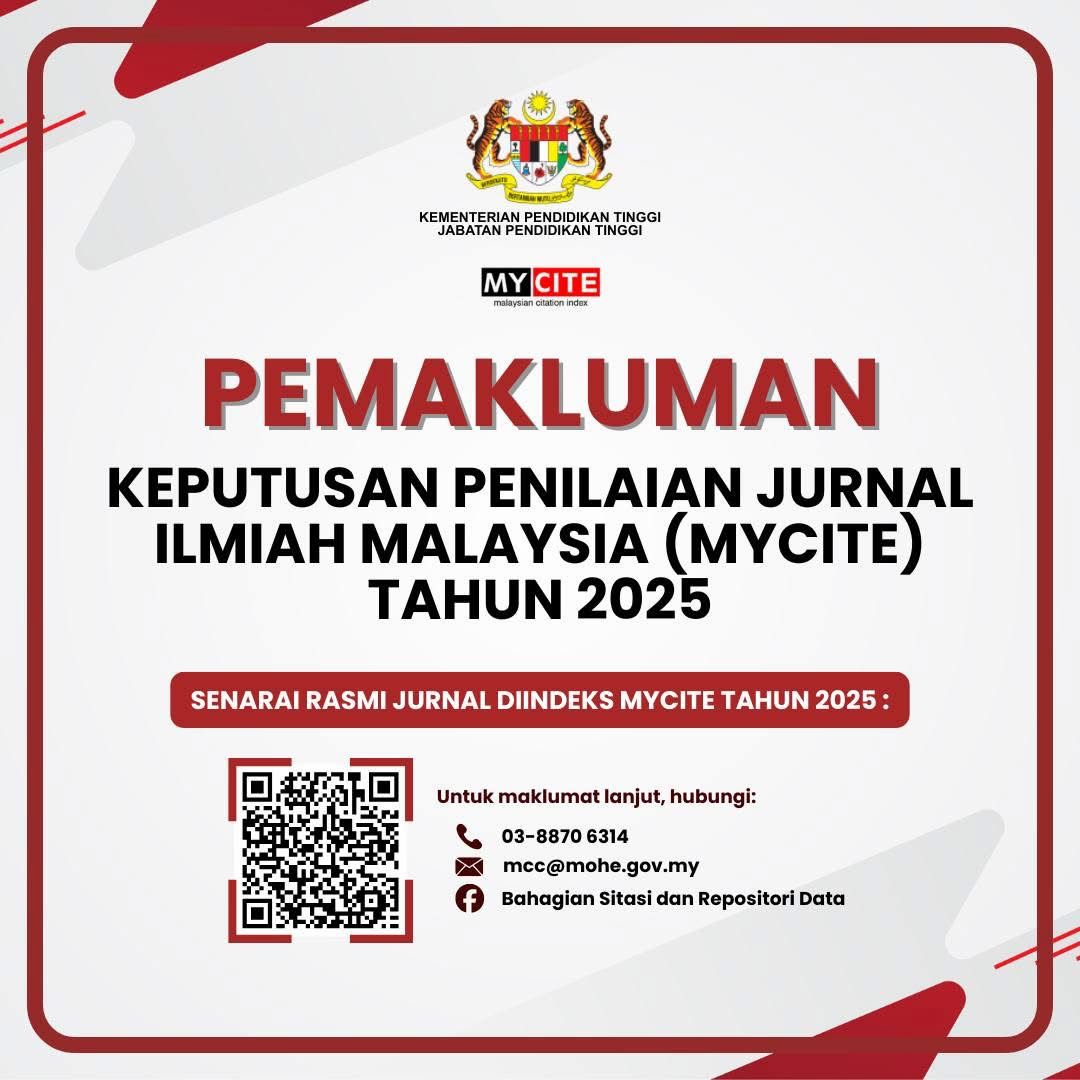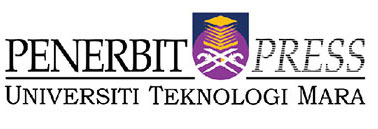Konflik Watak Dan Perwatakan Dalam Saladin The Animated Series: Analisis Intertekstualiti
Conflicts of Characters and The Characterization in Saladin The Animated Series: Analysis of Intertextuality
DOI:
https://doi.org/10.24191/idealogy.v5i1.184Keywords:
intertekstualiti, siri animasi, eksistensi, haplologi, demitefikasiAbstract
This study focuses on the characters and characterization between hypo text biographical of Sultan Salahuddin al-Ayubi from the text entitled Saladin or What Befell Sultan Yusuf by Baha ed-Din or Ibnu Shaddad and hypertext Saladin the Animated Series (2010) directed by Steve Bristow. One important element in a story is characters and characterization as it developed a story. The characters and characterization were evaluated with intertextuality theory to identify the existence of text in text or in this context of study, biographical in animated series or it is also known as dialogue in a text by Julia Kristeva. The textual analysis on characters and characterization were focusing on character of Saladin, Tarik, Anisa, Duncan, and Omar. The researcher assessed the process of transformation, existence, haplology, and demitification in making a comparison. The findings showed that the director of Saladin the Animated Series, Steve Bristow, had changed the biography of Sultan Salahuddin al-Ayubi.
Keywords: Intertextuality, Animated Series, Transformation, Existence, Haplology, Demitification.
ABSTRAK
Kajian ini menumpukan pemerhatian terhadap watak dan perwatakan antara hipoteks biografi Sultan Salahuddin al-Ayubi daripada teks Saladin or What befell Sultan Yusuf oleh Baha ed-Din atau Ibnu Shaddad dan hiperteks Saladin the Animated Series (2010) yang diarahkan oleh Steve Bristow. Antara elemen penting dalam sesebuah cerita ialah watak dan perwatakan kerana ia menggerakkan sesebuah cerita. Watak dan perwatakan ini dinilai dengan teori intertekstualiti untuk melihat proses teks dalam sebuah teks atau dalam konteks kajian ini, biografi dalam siri animasi atau boleh juga dikenali sebagai dialog antara teks yang dipelopori oleh Julia Kristeva. Kajian tekstual analisis watak dan perwatakan memfokuskan watak Saladin, Tarik, Anisa, Duncan, dan Omar. Pengkaji menilai proses transformasi, eksistensi, haplologi, dan demitefikasi dalam melakukan perbandingan watak dan perwatakan. Penemuan menunjukkan bahawa Pengarah Saladin the Animated Series, Steve Bristow, telah mengubah biografi Sultan Salahuddin al-Ayubi.
Kata kunci: Intertekstualiti, Siri Animasi, Transformasi, Eksistensi, Haplologi, Demitefikasi.
References
Bakhtin, M. (1976). The Dialogic Imagination. Austin: University of Texas Press.
Beha Ed-Din. (1896). The Life of Saladin (1137-1193 A.D). Retrieved 24 Disember, 2014, from Library of Palestine Pilgrims' Text Society: https://archive.org/details/libraryof palesti13paleuoft.
Bristow, S. (Director). (September 2010). Saladin: The Animated Series [Motion Picture].
Hatta Azad Khan. (24 Mac, 2010). Karya Besar Sastera & Filem - Manifestasi Maruah dan Ketamadunan Bangsa. Retrieved 20 Ogos, 2015, from Fakulti Teknologi Kreatif & Artistik: http://eprints.uitm.edu.my/3059/1/NK_PROF.%20DR.%20HATTA%20AZAD%20KHAN%20CT%2010.pdf
Kristeva, J. (1980). Desire in Language: a semiotic approach to literature. Oxford: Blackwell.
Mana Sikana. (1998). Teori dan Pendekatan Kritikan Sastera Moden. Shah Alam, Selangor: Fajar Bakti.
Mana Sikana. (2013). Koleksi Teori Sastera. Kuala Lumpur: Pustaka Karya.
Mawar Safei. (2010). Novel Intertekstual Melayu. Bangi: Universiti Kebangsaan Malaysia (UKM).
Mawar Safei, Misran Rokimin, & Che Abdullah Che Ya. (2011). Tradisi dalam Karya Anwar Ridhwan dan Putu Wijaya. Jurnal Akademika, 81(1):83-91.
Mohd Saberi Muda, & Mas Rynna Wati Ahmad. (2017). Puisi ke Teater: Transformasi karya Marzuki Ali. Jurnal Melayu Bil 16 (1), 101-114.
Mohd Sholeh Sheh Yusuff, & Mohd Nizam Sahad. (2013). Bacaan Intertekstual Teks Fadilat dalam Tafsir Nur al-Ihsan. Jurnal Usuluddin 37, Januari-Jun , 33-55.
Saladin Filem Animasi Malaysia. (28 Mac, 2007). Retrieved 13 Oktober, 2014, from http://www.utusan.com.my
Saladin filem animasi Malaysia menang hadiah peringkat dunia. (n.d.). Retrieved 26 Feb, 2015
Siri animasi Saladin di TV1 setiap Sabtu. (1 Disember, 2010). Retrieved 7 November, 2014, from Berita Harian: www.bharian.com.my/SirianimasiSaladindiTV1
Ulfah, N. M. (2012). Analisis Wacana Nilai-Nilai Dakwah Dalam Novel Negeri Lima Menara Karya Ahmad Fuadi. Retrieved from Institute Agama Islam Negeri (IAIN) Walisongo: http://eprints.walisongo.ac.id/124/
Wellek, R. (1973). Concepts of Criticism. United States: Yale University Press.
Downloads
Published
Issue
Section
License
UiTM Press (the Publisher) has agreed to publish the undersigned author’s paper in Idealogy Journal. The agreement is contingent upon the fulfilment of a number of requirements listed below.
1. The undersigned author warrants that the paper entitled below is original, that it is not in any way libellous or unlawful in Malaysia, that it does not infringe any copyright or other proprietary right. The undersigned hereby represents and warrants that he/she is the author of the paper, except for material that is clearly identified as to its original source, with permission notices from the copyright owners where required. The undersigned represents that he/she has the power and authority to sign and execute this agreement.
2. The undersigned author warrants that the paper entitled below has not been published elsewhere, and also it will not be submitted anywhere else for publication prior to acceptance/rejection by this Journal.
3. By submitting the paper entitled below, the undersigned author agrees to transfer the rights to publish and distribute the paper in an international e-journal (entitled above) to Publisher.
4. The undersigned author agrees to make a reasonable effort to conform to Publisher's submission guidelines and to liaise with the editor to ensure that the requirements of these guidelines are met to a reasonable degree.
5. The corresponding author signs for and accepts responsibility for releasing this material on behalf of any and all coauthors. This agreement is to be signed by at least one of the authors who has obtained the assent of the co-author(s) where applicable. After submission of this agreement signed by the corresponding author, changes of authorship or in the order of the authors listed will not be accepted.




